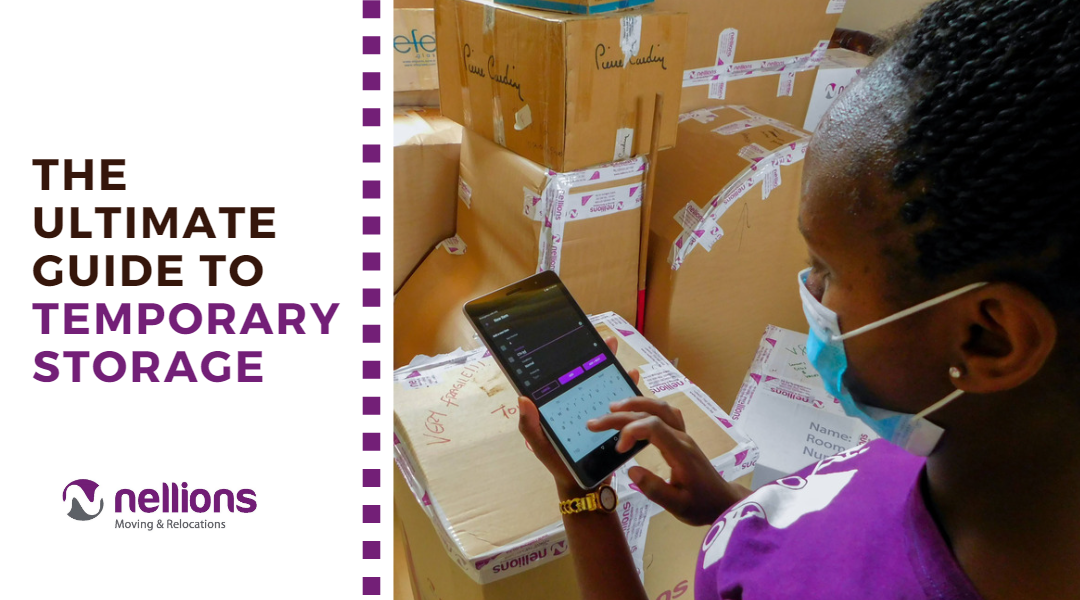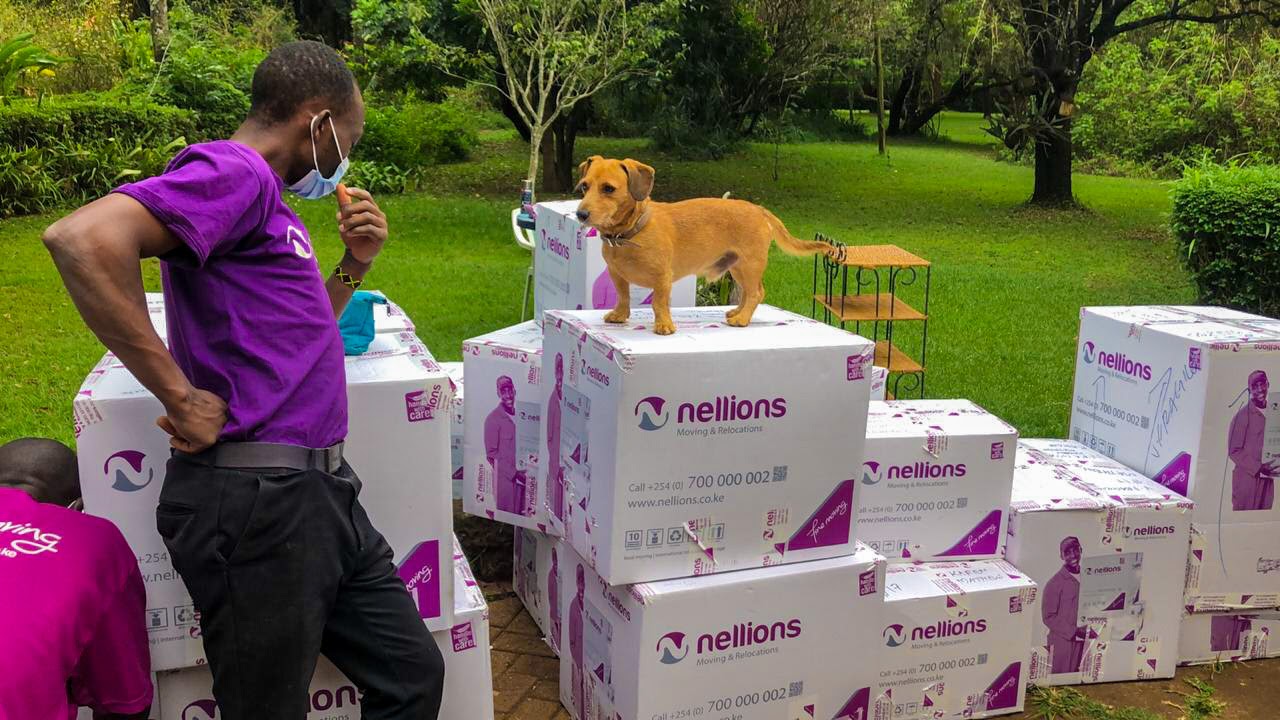Last updated on June 15th, 2023 at 08:42 am
Storage in Transit (SIT) is a service offered by some house moving companies to customers who require temporary storage for their belongings during the moving process. It allows customers to store their items in a secure storage facility while waiting for their new home to become available.
When a customer engages Temporary Storage services from a mover, the mover will typically pack and transport the customer’s belongings to a storage facility.
The belongings are then stored in a secure, environment until the customer is ready to receive them at their new home.
Once the customer is ready for their belongings to be delivered, the mover will transport them from the storage facility to the new home.
What is Temporary Storage (Storage in Transit)?
Storage in Transit (Temporary Storage) refers to storing your items for a short period of time, usually necessitated by other factors. This is usually done by moving companies who will store your things at their own temperature-controlled storage facility until you need them again. Sometimes storage in Transit is included as part of a relocation package, but it can also be purchased separately from moving companies if you prefer to go down that route.
Storage in Transit allows you to leave all your belongings at one location while your new home gets ready. When you’re ready to pack up, everything will be there waiting for you. No packing or unpacking is required until your final premises is ready.
Different types of Storage in Transit services are available when you are moving your home. These include:
Open Space Storage: This is a great option to store your goods in a shared space in the mover’s storage facilities at a lower cost. Your goods are well protected and separated from others’ belongings.
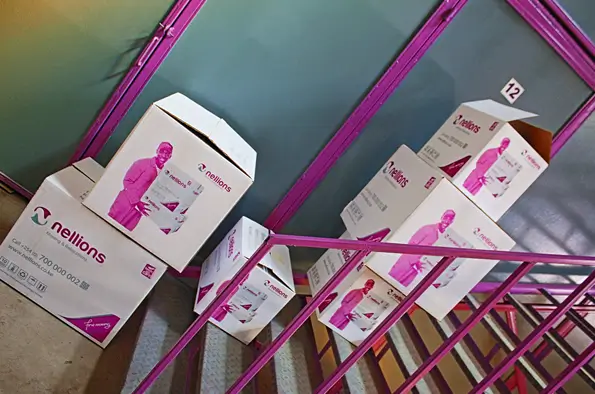
Closed Space Storage: It is a great way to store your goods during the move. We provide lockable storage units that you can use to store items in Transit. You lock your storage unit and keep the keys until when you need to access your goods again.
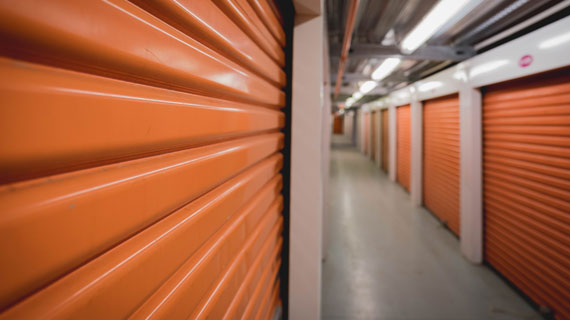
When does one need Temporary Storage?
Storage in Transit is very common in these cases:
- Exporters: In many cases, people put their items in storage for them to process the paperwork and have all the documents needed in hand by the time the shipment arrives. This saves on demurrage and port storage charges.
- Importers: sometimes the shipment is cleared before schedule and the lease contract is yet to take effect. This kind of storage is always a good option to avoid hefty demurrage and port storage charges.
- People who are renovating their homes: We help you pack your household goods, put them in storage as you refurbish your house, and then return them upon completion and set the house up as if you never moved in the first place.
- Kenyans moving abroad on temporary Visas and want to save on rental/lease expenses.
- When your notice period at the origin house expires before the lease agreement at the new house is put in place.
- Temporary storage also comes in handy for exporters shipping on groupage options.
Benefits of Storage in Transit
Storage in Transit plays an important role when moving your household goods. The following are some of the benefits of using reputable Storage in Transit services in Nairobi:
Temporary Storage Reduces Stress
Storing your items with the best SIT movers during Transit is a good way to reduce the stress of moving. Storing your belongings during transit allows you to focus on other things, like finding a new home or settling into your new place.
Additionally, SIT lets you ensure everything is packed properly before unpacking, which can help prevent damage or loss during the move.
Storage in Transit Smoothens the Moving Process
Storing your items in Transit means you can stop worrying about finding a safe and secure place for them. It’s a relief not to have to worry about driving around looking for affordable storage options.
Instead, you can focus on moving into your new home and setting up everything as fast as possible. It also makes it easier for movers because they won’t have to worry about picking up and dropping off their belongings multiple times during moving.
Your Belongings Stay Safe
Another benefit of using the best storage lockers is that they keep your belongings safe from damage or theft during the moving process. If you’re moving and someone breaks into your house, they won’t be able to steal anything because it will be safely stored away until it arrives at its final destination.
How Does Temporary Storage Work?
Here’s how storage in transit services generally work:
- The moving company will pack and load your belongings onto a truck or container for transportation to the storage facility.
- Once the truck or container arrives at the storage facility, the belongings will be unloaded and placed in a secure storage area.
- The temporary storage facility will typically have security measures in place to ensure the safety of your belongings, such as surveillance cameras, access control systems, and alarm systems.
- While your belongings are in storage, you may be charged a fee based on the amount of space your belongings occupy in the storage area. In some cases, especially if the storage period is predetermined, the storage fees are embedded in the moving quotation. Ensure that this clear before the job starts
- When you’re ready to have your belongings delivered to the final destination, the moving or logistics company will arrange for transportation from the storage facility to the destination.
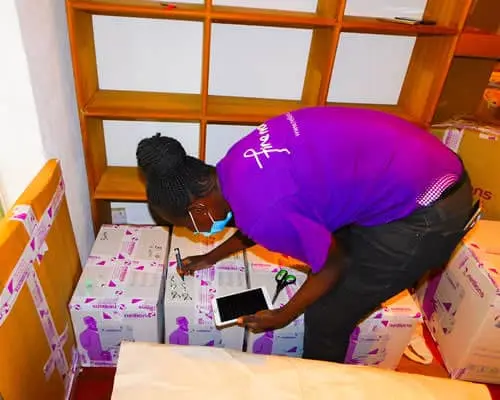
Questions to Ask When Procuring Temporary Storage Services in Nairobi
As a general rule, any respectable moving company must have its own storage facilities. It’s important to choose a reputable moving company in Nairobi that offers the best storage in transit services to ensure that your belongings are safe and secure during the storage period.
Here are some important questions to pose:
- What security measures are in place at the movers’ storage facilities?
- How long has the prospective company been in business?
- Are moving boxes considered as part of the price, or do they cost extra?
- How much will it cost?
- What kind of insurance does the company offer for goods in storage?
- How much time will it take for my items to arrive at their destination?
- Will they deliver directly to my new house or apartment?
How to Pick the Best Storage in Transit Company in Nairobi
Here are some amazing tips on how to choose the right Storage in Transit company in Nairobi:
- Ask friends and family for recommendations.
- Check their reviews online.
- Ask about their insurance coverage and if they offer any additional protection for your items.
- If you are moving internationally, how much expertise does the storage facility have with international relocations?
- Check if they provide packing materials or if you must provide them yourself.
- Consider if they offer additional services after storage such as transport, setting up, and housekeeping.
- Ensure that your storage unit is sufficiently ventilated.
- Avoid opting for the cheapest units available on the market or in large retail stores.
- Make sure the unit has enough room for your belongings.
- Look for a facility with secure access and an area that is always well-lit.
Which Items can be Put in a Temporary Storage Facility?
Whether you’re planning a house move or have just completed one, most people are unaware of what can and cannot be stored by a storage company. Here is a summarized list of what can be stored in a storage facility:
- Furniture
- Large appliances
- Electronics
- Seasonal items
- Documents, books, and files
- Curtains
- Carpets
- Crockery and cutlery
- Paintings
Which Items Should Never be Put in a Temporary Storage Facility?
On the other hand, below are some of the things that cannot be stored in a storage facility:
- Food
- Plants
- Pets
- Hazardous items
- Stolen items
- Wet items
- High-value items
- Tires
- Money
- Gas cylinders
Conclusion
Storage in transit services are provided by moving or logistics companies to temporarily store goods during transportation. These services are useful when the destination is not yet ready to receive the goods or when there is a delay in transportation.
The company will pack and load your belongings onto a truck or container, which will then be transported to a secure storage facility. While in storage, you may be charged a monthly fee based on the amount of space your belongings occupy.
When ready for delivery, the company will arrange transportation from the temporary storage facility to the final destination.
It is important to choose a reputable company and inquire about security measures and fees.
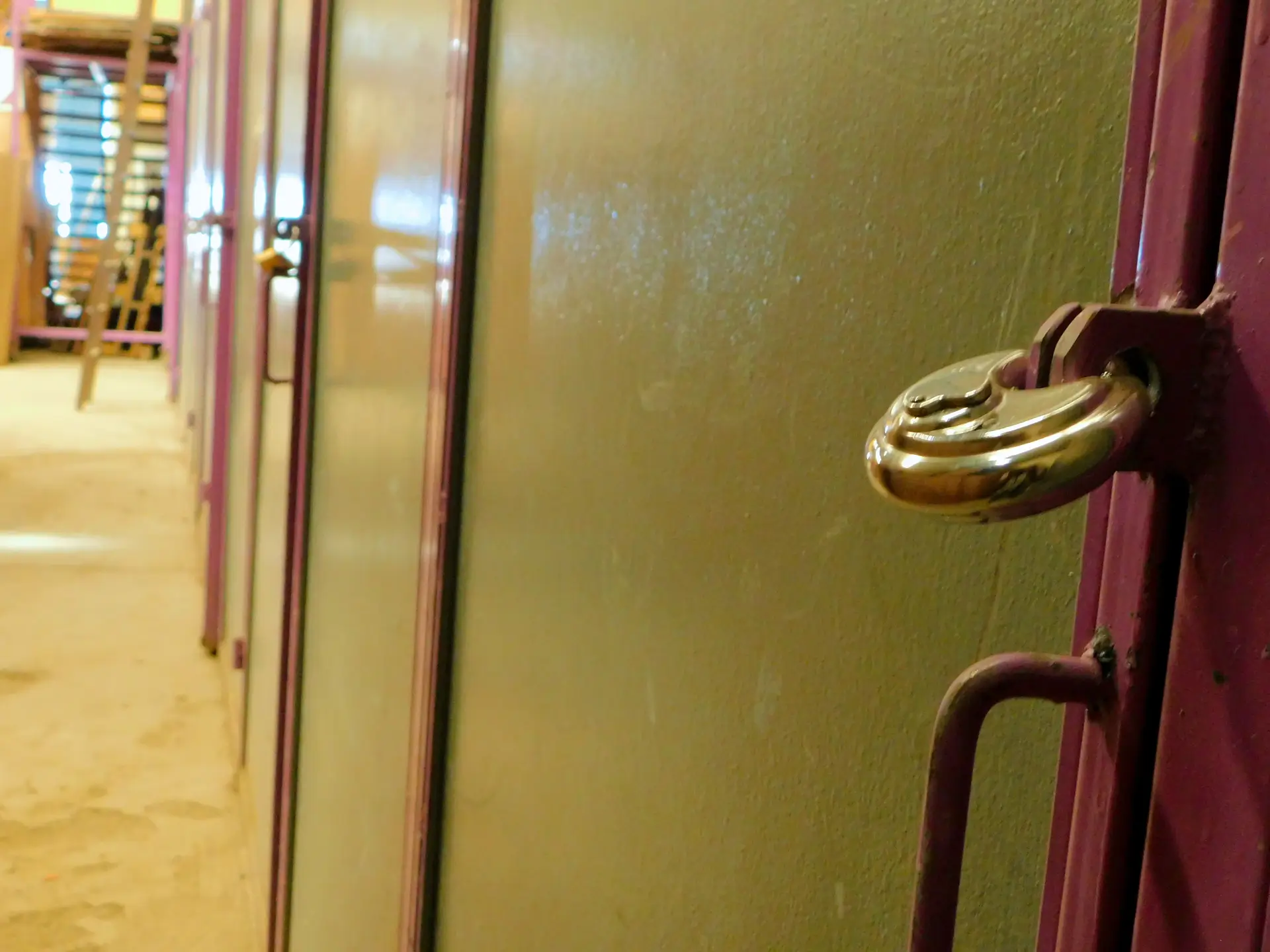
FAQs
Storage in Transit (SIT) is a service offered by some house moving companies to customers who require temporary storage for their belongings during the moving process. It allows customers to store their items in a secure storage facility while waiting for their new home to become available.
Your items will be stored in a warehouse with high-density shelving and automated inventory tracking, which means you can be sure your stuff is safe and secure.
Your belongings will be packed and stored in a secure, climate-controlled facility. Each item will be wrapped with the utmost care, and all the boxes and crates will be stacked in an organized manner, one on top of the other crate, to make the most efficient use of space.
Yes. We do not accept very valuable items, pets, money, stolen items, wet terms, foodstuff, or even money.
Here is a comprehensive list of some of the things that cannot be stored in a storage facility:
You will pay a flat rate for the first month of storage. You must pay in advance, but if you choose to extend your storage period, you can pay a pro-rated amount each month.
All used vehicles imported into Kenya must undergo a pre-shipment inspection for roadworthiness, safety, and other standards. This inspection is conducted by Kenya Bureau of Standards (KEBS) appointed agencies in the country of export- This is done by QISJ only if they are not present in the country of origin, the vehicle will be subjected to local inspection by KEBS at a fee of 0.6% of the value of the vehicle or USD.265/- whichever is higher. The inspection verifies the vehicle’s condition, mileage, and year of manufacture.
Yes. We do not accept very valuable items, pets, money, stolen items, wet terms, foodstuff, or even money.
Here is a comprehensive list of some of the things that cannot be stored in a storage facility:
Yes, you can access your stored belongings anytime during the storage period. You will be given a key and can access your storage locker whenever you choose.
Returning residents may be eligible for duty-free importation of a vehicle under certain conditions. They must have lived outside Kenya for at least two years and not visited Kenya for more than 90 days during this period. The vehicle must have been in the owner’s possession for at least 12 months before returning to Kenya.
Destination services are often a feature of our Employee Relocation service, especially pertaining to international employee relocations to Kenya.
Import duties and taxes are calculated based on the Current Retail Selling Price (CRSP) of the car. The Kenya Revenue Authority (KRA) uses this value to determine the payable Import Duty (25%), Excise Duty (20% for cars less than 3 years old and 30% for older), VAT (16%), and other levies (RDL at 2% and IDF at 3.5%). You can use KRA’s online calculator or consult with a customs agent for precise calculations.
The cost of international employee relocations from Kenya depends on various factors such as the volume of your goods – which then informs packing fees, containerization fees, transport charges & labour, the extent of the relocation company’s involvement, and the nature of the goods.
As a member of both the International Association of Movers (IAM) as well as the British Association of Removers (BAR), Nellions has a functional network of over 400 destination partners in 170+ countries.
Assuming everything stays on schedule (including pre-clearance documentation) the entire customs clearance should take two to three days.
If you complete the pre-clearance process, it will only take 4 days to complete customs clearance.
The process can take several weeks to a few months, depending on various factors like shipping times and customs clearance. Barring any special circumstances, Customs clearance for motor vehicles in Kenya typically takes 4 days at most.
Your belongings will be packed and stored in a secure, climate-controlled facility. Each item will be wrapped with the utmost care, and all the boxes and crates will be stacked in an organized manner, one on top of the other crate, to make the most efficient use of space.
Yes, insurance coverage is included for items stored in the facility. We provide coverage for all of our customers.
Storage fees are calculated based on the size of your storage unit and the time you’ll store your items. The larger the unit you rent, the smaller your fee will be.
If your belongings are damaged or lost, the mover is liable for the damages. You should have insurance on your belongings. If you have purchased additional insurance from your moving company, they will reimburse you for any losses.
Storage in Transit (SIT) is a service offered by some house moving companies to customers who require temporary storage for their belongings during the moving process. It allows customers to store their items in a secure storage facility while waiting for their new home to become available.
Last updated on June 15th, 2023 at 07:32 am
- Obtain pre-clearance documentation
- Obtain passed clearance entry
- Obtain KEPHIS release
- Obtain KRA release
- Obtain KEBS release
- Obtain port health service release
- Obtain KRA final release
The amount of time you store your belongings is up to you, depending on how long you need them in storage. If you want to extend your stay, we can help with that.
– Obtain pre-clearance documentation
– Cargo should be manifested in iCMS systems
– Shipments cleared at ICD must undergo advanced cargo X-ray scanning
– Non-diplomatic shipments are subjected to 100% physical verification
– Shipments should undergo the Duty Exemption process
– Payment of Railway Development Levy (RDL)
When you’re ready to get your belongings, just contact us and let us know when you’d like them delivered. We’ll handle all the details from there.
You’ll first need to deregister the car in the country of origin. You’ll also need to gather the necessary documentation to support your vehicle’s shipping, including an export certificate, road worthiness inspection certificate, and bill of lading. Once shipped into Kenya, your clearing agent will assist with the process of clearing Kenyan customs. Once NTSA registers the vehicle, you are free to leave the port with it.
We are trusted to handle international employee relocations for the top corporates and diplomatic agencies. Learn more here.
Kenyan law requires marine insurance to be placed with a Kenyan insurer for imports and exports into/leaving Kenya. It is also prudent to undertake insurance for valuable items. All Nellions moves are covered by Goods in Transit insurance during transport within Kenya.
Your items will be stored in a warehouse with high-density shelving and automated inventory tracking, which means you can be sure your stuff is safe and secure.
The scope of our operation is restricted to moving-related services only. These include move consultation, handling of goods, transport, customs clearance, and destination services in Kenya.
Internationally acclaimed and celebrated by its clients, Nellions is the best moving company in Nairobi for same-day movers and all other moving engagements.
You will pay a flat rate for the first month of storage. You must pay in advance, but if you choose to extend your storage period, you can pay a pro-rated amount each month.
Yes, you can access your stored belongings anytime during the storage period. You will be given a key and can access your storage locker whenever you choose.
If your belongings are damaged or lost, the mover is liable for the damages. You should have insurance on your belongings. If you have purchased additional insurance from your moving company, they will reimburse you for any losses.




